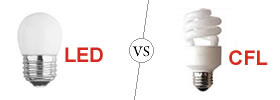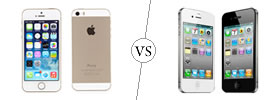Difference between Comets and Planets
Key difference: Comets are icy bodies in the solar system that have wide orbits. These orbits can take anywhere from a few years to hundreds of thousands of years to complete. A planet, on the other hand, is a large object that orbits around a star or a stellar remnant. This is mainly due to its own gravity and gravity of the star that allow the planet to have an orbit around the star.
.jpg) Comets are icy bodies in the solar system that have wide orbits. These orbits can take anywhere from a few years to hundreds of thousands of years to complete. The comets’ orbits are often directed by the gravitational pull of the other solar bodies, such as the planets, the sun and the asteroids. The comet is composed of loose collections of ice, dust, and small rocky particles.
Comets are icy bodies in the solar system that have wide orbits. These orbits can take anywhere from a few years to hundreds of thousands of years to complete. The comets’ orbits are often directed by the gravitational pull of the other solar bodies, such as the planets, the sun and the asteroids. The comet is composed of loose collections of ice, dust, and small rocky particles.
When the comet passes close to the sun, the ice on the comet starts to melt. Hence, the debris embedded in the snow starts to fall off and trail behind the comet. This gives the comet a ‘tail’ like structure, called the coma. The coma is thin, fuzzy, temporary atmosphere, which appears as a tail of the comet. The size of the comet can range from a few hundred meters to tens of kilometers across; the bigger the comet, the bigger its coma.
As of January 2011, there were 4,185 known comets, the most famous of which is probably the Halley's Comet, which passes the earth every 75–76 years. There are two main types of comets: short-period comets and longer-period comets. The short-period comets are commonly believe to originate from the Kuiper belt and associated area, located just beyond the orbit of Neptune. The longer-period comets are believed to originate in the Oort cloud which is a spherical cloud of icy bodies in the outer Solar System. Like Halley's Comet, short-period comets have short orbits, while longer-period comets take more time to come around.
Recent research into the formation and the makeup of asteroids and comets has shown that they are quite similar in content. The main difference being the fact comets are practically asteroids with ice on them. In fact, some asteroids are believed on have one had ice on them. Hence, it is said that when the comet has ejected all of its water and other vaporized materials over various completions of its orbit, it will eventually become an asteroid.
A planet, on the other hand, is a large object that orbits around a star or a stellar remnant. This is mainly due to its own gravity and gravity of the star that allow the planet to have an orbit around the star. The orbit is usually elliptical in shape, mainly depending on the gravitational force of the planet and the star.
 The gravitational force of the planet is strong enough that it leads the planet to be rounded, i.e. compound its matter in a spherical shape. A planet has also cleared its neighboring region of any other debris. The planetesimals, i.e. other debris, should either get absorbed into the planet, or if it big enough to have a gravitational force of its own, it might become a satellite of the planet, i.e. moon, or will just float away into space.
The gravitational force of the planet is strong enough that it leads the planet to be rounded, i.e. compound its matter in a spherical shape. A planet has also cleared its neighboring region of any other debris. The planetesimals, i.e. other debris, should either get absorbed into the planet, or if it big enough to have a gravitational force of its own, it might become a satellite of the planet, i.e. moon, or will just float away into space.
As per the International Astronomical Union (IAU), “A "planet" is a celestial body that: (a) is in orbit around the Sun, (b) has sufficient mass for its self-gravity to overcome rigid body forces so that it assumes a hydrostatic equilibrium (nearly round) shape, and (c) has cleared the neighbourhood around its orbit.”
Hence, as per this definition, there are currently eight planets in our solar system: Mercury, Venus, Earth, Mars, Jupiter, Saturn, Uranus, and Neptune, in order of distance from the Sun.
As per this definition, a comet cannot be categorized as a planet, as a comet need not orbit around the Sun. It has an orbit and may or may not pass near a star. There may be millions of comet out there, but only a handful pass through our solar system. Furthermore, comets are not nearly big enough or strong enough to compound themselves in to a circular shape and/or to clear the ‘neighbourhood around its orbit’ of other debris.
Image Courtesy: space.com, nineplanets.org









Add new comment